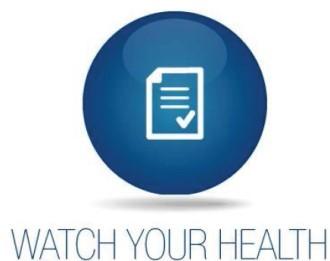Driving or working when you are tired is dangerous and one of the main cause of accidents. One cause of tiredness is Sleep Apnoea.  The following article gives you the main symptoms and causes and what to do if you think you suffer from it.
The following article gives you the main symptoms and causes and what to do if you think you suffer from it.
Obstructive Sleep Apnoea (OSA) is a condition where the walls of the throat relax and narrow during sleep, interrupting normal breathing. There are 2 types of breathing interruption characteristic of OSA: apnoea – where the muscles and soft tissues in the throat relax and collapse sufficiently to cause a total blockage of the airway; it is called an apnoea when the airflow is blocked for 10 seconds or more hypopnoea – a partial blockage of the airway that results in an airflow reduction of greater than 50% for 10 seconds or more.
What happens in OSA?
People with OSA may experience repeated episodes of apnoea and hypopnoea throughout the night. During an episode the lack of oxygen triggers your brain to pull you out of deep sleep – either to a lighter sleep or to wakefulness – so your airway reopens and you can breathe normally. After falling back into deep sleep further episodes of apnoea and hypopnoea can occur. These events may occur around once every one or two minutes throughout the night in severe cases.
Most people with OSA snore loudly. Their breathing may be noisy and laboured and it is often interrupted by gasping and snorting with each episode of apnoea. These repeated sleep interruptions can make you feel very tired during the day. You’ll usually have no memory of your interrupted breathing so you may be unaware you have a problem unless a partner, friend or family member notices the symptoms while you sleep.
When to seek medical advice
You should see your GP if you think you might have OSA. They can check for other possible reasons for your symptoms and can arrange for an assessment of your sleep to be carried out through a local sleep centre.
What causes OSA?
It’s normal for the muscles and soft tissues in the throat to relax and collapse to some degree while sleeping. For most people this doesn’t cause breathing problems but in people with OSA the airway narrows as the result of a number of factors including:
- being overweight or obese
- having a large neck
- taking medicines that have a sedative effect, such as sleeping tablets
- having an unusual structure in the neck (narrow airway, large tonsils, adenoids or tongue, a small lower jaw)
- smoking or drinking alcohol, particularly before going to sleep
Did you know that if you have sleep apnoea you are four times more likely to have coronary heart disease? There is a strong link between sleep apnoea and heart health so it is important to be aware of the risks and make an effort to reduce them. Sleep apnoea is linked to obesity – a major risk factor for heart disease and stroke.
Although it still appears unclear as to whether sleep apnoea is the cause of obesity and heart health problems or if in fact, obesity and heart health problems lead to sleep apnoea, the link between the two is evident and well-documented in several studies:
- A 10% weight gain is linked to a sixfold increased risk of developing moderate to severe obstructive sleep apnoea
- Patients with sleep apnoea are four times more likely to have coronary heart disease
- 50% of congestive heart failure patients have sleep apnoea
- 35% of people with obstructive sleep apnoea have hypertension
- 70% of people who have had a stroke have sleep apnoea
- A person with sleep apnoea is seven times more likely to have a car accident (drivers who are diagnosed with OSA and feel sleepy during the day must tell the DVLA (Driver and Vehicle Licensing Agency) and stop driving. Only once you are being successfully treated are you are safe to drive) – see information leaflet from DVLA in the download section of UK News – Tiredness Can Kill – Advice for Drivers
 For further Information:britishsnoring.co.uk
For further Information:britishsnoring.co.uk
http://www.nhs.uk/Conditions/Sleep-apnoea
blf.org.uk (British Lung Foundation)
